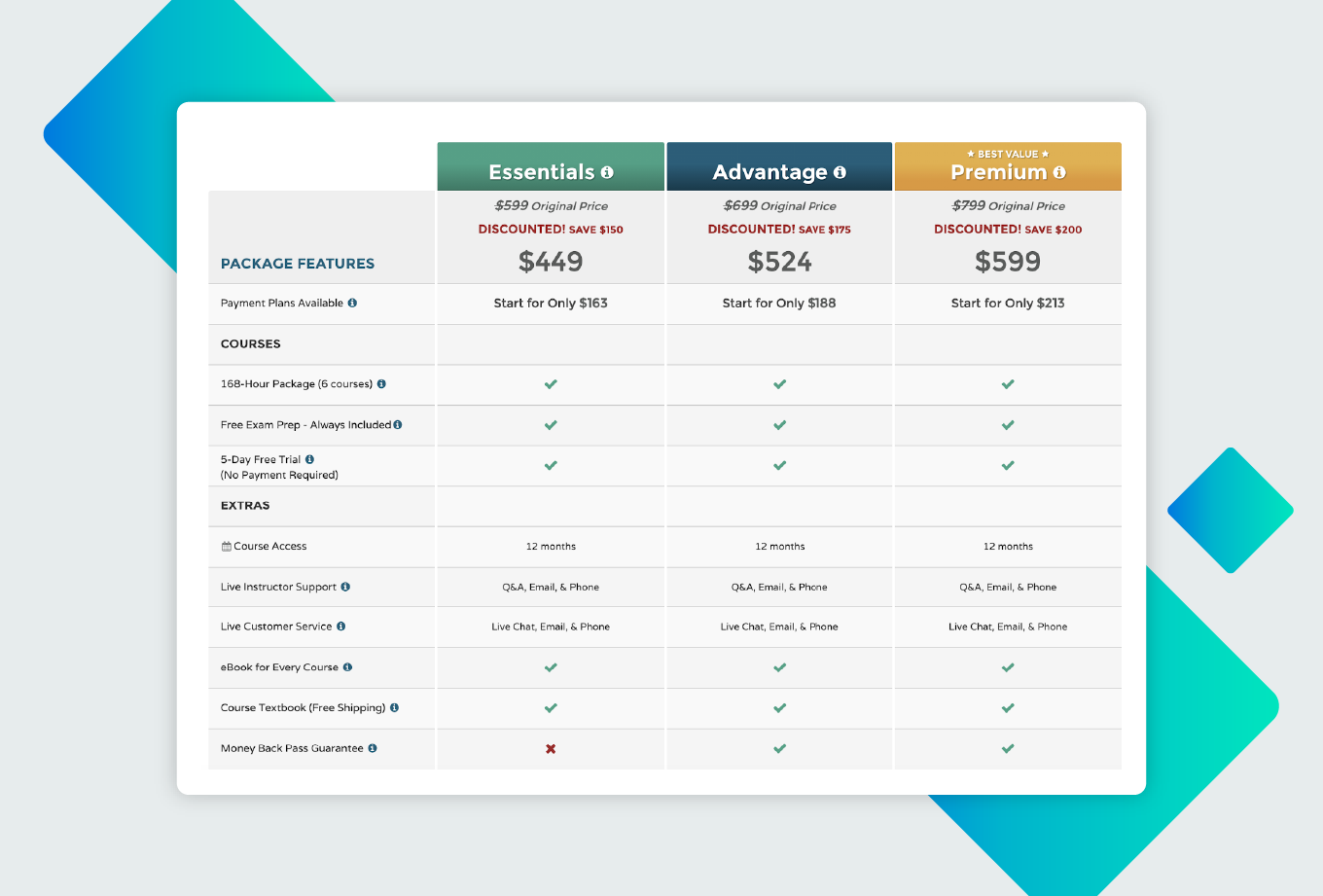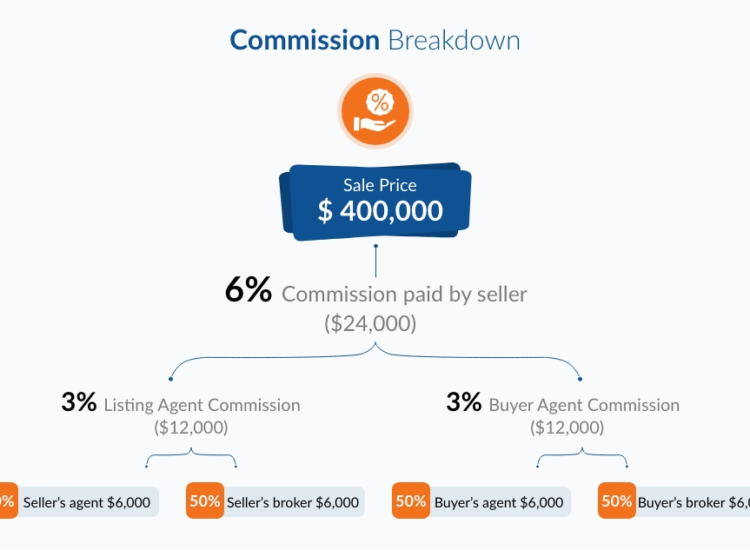In today’s fast-paced and competitive real estate market, continuous education is paramount. Whether you’re a seasoned professional or just starting out, staying updated with the latest trends, techniques, and regulations can make all the difference. One of the most efficient ways to keep your skills sharp and relevant is through online real estate classes. Let’s explore why and how real estate online courses can help you elevate your professional game.
Toc
- 1. Introduction to Real Estate Online Classes
- 2. Tips for Making the Most Out of Your Real Estate Online Classes
- 3. Overview of Available Online Real Estate Courses
- 4. Real Estate Express and Kaplan Real Estate Education
- 5. Udemy and LinkedIn Learning
- 6. Tips for Choosing the Right Online Real Estate Course
- 7. Conclusion
Introduction to Real Estate Online Classes

Online real estate classes offer a convenient and flexible way to learn, without compromising on the quality of education. With the advancements in technology, online learning has become a popular choice for professionals in various industries, including real estate.
Importance of Continuous Education for Real Estate Professionals
The real estate market is dynamic and constantly evolving. From changing market conditions to new regulations, staying informed is not just beneficial—it’s essential. Continuous education helps real estate professionals maintain their relevance and grow both personally and professionally. It ensures you’re equipped with the latest knowledge and skills to serve your clients better and outperform competitors.
Advantages of Taking Real Estate Online Classes
There are several advantages to taking real estate classes online:
- Flexible Schedule: Online courses allow you to study at your own pace and choose when and where you want to study. This flexibility is especially beneficial for those who have busy schedules or prefer self-paced learning.
- Cost-effective: Online courses often cost less than traditional classroom courses, making them an affordable option for those looking to enhance their knowledge and skills. Additionally, you save money on transportation and other expenses associated with attending a physical class.
- Access to Quality Education: With online real estate classes, you have access to top-notch instructors and course material from anywhere in the world. This allows you to learn from industry experts and gain valuable insights into the ever-changing real estate market.
Types of Real Estate Online Classes
There is a wide range of online courses available for real estate professionals, including:
- Pre-licensing Courses: These courses are mandatory for obtaining a real estate license in most states. They cover topics such as basic principles of real estate, contracts, finance, property management, and more.
- Continuing Education Courses: These courses help professionals fulfill their state-mandated continuing education requirements. They cover topics related to ethics, legal updates, and other relevant areas.
- Specialized Courses: These courses focus on specific aspects of the real estate industry, such as commercial real estate, property management, appraisal, and more. They are ideal for those looking to expand their knowledge in a particular area.
Tips for Making the Most Out of Your Real Estate Online Classes
To truly elevate your professional game with online real estate classes, here are some tips to keep in mind:
Choose Accredited Courses
When selecting your online courses, it’s crucial to ensure they are accredited by a recognized and authorized organization. Accreditation signifies that the course has been rigorously evaluated and meets established industry standards. This not only enhances the quality of the education you receive but also ensures that the course is acknowledged by potential employers or clients, giving you a competitive edge in the job market.
Stay Organized
Online learning demands a high level of self-discipline and effective time management skills. To maximize your success, create a detailed study schedule that outlines your study times and breaks. Set specific, achievable goals for each study session, whether it’s completing a module, reading a chapter, or working on assignments. By staying organized and sticking to your plan, you will be able to maintain a steady pace in your learning journey, ultimately leading to successful course completion.
Participate in Discussions
Most online courses feature discussion forums where students can engage with instructors and fellow learners. Actively participating in these discussions can greatly enhance your learning experience. Use these platforms to ask questions, express your thoughts, and share insights on the course material. Engaging with others not only helps clarify your understanding but also allows you to learn from the diverse experiences and perspectives of your peers, fostering a richer educational environment.
Overview of Available Online Real Estate Courses

There is a wide range of online real estate courses available, covering various aspects of the industry. Some popular platforms and institutions offering these courses include:
Coursera and edX
Coursera and edX are two leading online platforms that provide a variety of real estate courses from respected universities and professional organizations. These platforms not only offer courses on fundamental real estate principles but also delve into advanced topics such as investment analysis, real estate finance, and market trends. A key advantage of these platforms is their partnership with renowned institutions, ensuring that the course content is both comprehensive and up to date, reflecting current industry standards and practices. Additionally, many courses feature video lectures, interactive quizzes, and peer-reviewed assignments that enhance the learning experience, making it more engaging and effective.
Local Community Colleges
Don’t overlook local community colleges, as they often offer affordable online real estate courses tailored to meet the needs of aspiring professionals in your area. These programs frequently align with state licensing requirements and provide a strong foundation in real estate principles. Furthermore, community colleges often have connections to local real estate professionals, which can lead to networking opportunities, internships, and job placements after course completion. Exploring courses at your local college can provide not only education but also community support as you pursue your career in real estate.
Real Estate Express and Kaplan Real Estate Education
Real Estate Express and Kaplan Real Estate Education are well-known providers specializing in online real estate courses. Both platforms cater to a wide range of learners, from those seeking pre-licensing education to seasoned professionals pursuing continuing education or specialized knowledge.
Real Estate Express
Real Estate Express offers a user-friendly platform with a variety of study materials, including interactive learning modules, practice exams, and more. Their courses are designed to not only prepare students for licensing exams but also to equip them with practical knowledge applicable in day-to-day real estate operations. With options for both live classes and on-demand learning, students can choose the style that suits them best.
Kaplan Real Estate Education
Kaplan, on the other hand, is renowned for its comprehensive curriculum that combines rigorous academic standards with real-world insights. Their courses often feature engaging content, live online classes, and extensive resources to ensure that learners are well-prepared for the challenges of the real estate sector. Kaplan’s multifaceted approach helps bridge the gap between theory and practice, providing valuable skills that are crucial for success in the industry.
Together, these platforms contribute to a robust online learning ecosystem for current and aspiring real estate professionals, making it easier than ever to pursue a career in this dynamic field.
Udemy and LinkedIn Learning
Udemy and LinkedIn Learning are both popular platforms that offer a diverse array of real estate courses, catering to learners at various levels of expertise.
Udemy
Udemy is known for its extensive library of courses that cover nearly every aspect of real estate. Instructors, who are often industry professionals, design courses that range from introductory overviews to advanced strategies in real estate investing and property management. Courses on Udemy typically feature video lectures, quizzes, and downloadable resources, allowing students to learn at their own pace. The affordability of these courses, along with frequent discounts, makes Udemy an attractive option for those looking to gain specific skills without making a significant financial commitment.
LinkedIn Learning
LinkedIn Learning offers a more professional approach, with courses aimed at aligning educational content to the skills employers seek in the real estate market. Alongside a plethora of real estate courses, the platform allows users to earn certificates that can be added directly to their LinkedIn profiles, enhancing visibility to potential employers. The courses often focus on pragmatic topics such as marketing real estate, the legal aspects of real estate transactions, and techniques for negotiating deals. This makes LinkedIn Learning a valuable resource for professionals seeking to advance their careers and stay competitive in an ever-evolving market.
Overall, both Udemy and LinkedIn Learning provide flexible options for those interested in furthering their real estate education, ensuring that learners can find courses that meet their specific needs and career ambitions.
Tips for Choosing the Right Online Real Estate Course

With so many options to choose from, it can be challenging to determine which online real estate course is right for you. To make an informed decision, consider the following tips:
Accreditation
One of the most important factors to consider when selecting an online real estate course is accreditation. Ensure that the program you choose is recognised by relevant real estate boards or associations, which can be critical for gaining licensure in your state. Accredited courses are more likely to provide a curriculum that meets industry standards, which can directly impact your readiness for both examinations and practical application in your real estate career.
Course Content
Examine the course syllabus to assess the topics covered. The best courses will offer a well-rounded education that includes not only foundational knowledge but also advanced concepts related to your area of interest, whether it be residential, commercial, or investment-focused real estate. Look for courses that incorporate current market trends and practical skills, such as negotiation or marketing strategies, that you will find valuable in your professional practice.
Learning Format
Consider how you learn best. Do you prefer the flexibility of on-demand courses, or do you thrive in a live classroom setting with real-time interaction? Many platforms offer a mix of both formats, so it’s essential to identify what works for you. This choice will impact not just your learning experience but also your level of engagement and retention of the material.
Reviews and Testimonials
Finally, reviewing feedback from previous students can provide insight into the quality of the course and the effectiveness of the instructors. Look for testimonials that highlight experiences with the course content, teaching methods, and how well the course prepared students for real-world scenarios. This information can guide you towards making a choice that ensures a positive learning journey.
Platform Features
When evaluating online real estate courses, it’s also important to consider the features and tools offered by the platform. Many educational platforms provide supplemental resources such as discussion forums, live Q&A sessions, and one-on-one mentoring opportunities to enhance the learning experience. Access to comprehensive study materials, interactive quizzes, and performance tracking can help reinforce your understanding of the material. Additional features like mobile access, progress tracking, and downloadable content can further enhance convenience, enabling students to study whenever and wherever it suits them. Ultimately, choosing a platform that aligns with your learning preferences and offers robust support can significantly impact your educational experience and success in the real estate field.
Expert Quotes
Alex Johnson, Real Estate Educator: “Online education has become a cornerstone of professional development in the real estate industry, offering unparalleled accessibility and flexibility that traditional methods cannot match.”
Dr. Emily Chen, Real Estate Economist: “Continuous learning is not just an option, but a necessity in the dynamic real estate market. Online courses provide an efficient and cost-effective means for professionals to stay ahead.”
Michael Green, Real Estate Technology Innovator: “The pandemic accelerated the acceptance and utilization of online learning in real estate, proving its value as a tool for skill enhancement and career growth.”
Laura Myers, Real Estate Trainer and Consultant: “Real estate professionals who invest in online education are investing in their future. The adaptability and range of courses available make it an essential component for career success.”
Conclusion
In conclusion, the landscape of online real estate education offers aspiring and working professionals an unprecedented opportunity to enhance their knowledge and skills. With platforms like Udemy and LinkedIn Learning providing diverse course offerings, students can tailor their learning experiences to fit their unique career goals and schedules. As the real estate market continues to evolve, staying informed and competent in industry practices is not just advantageous, but essential. By selecting accredited courses with a strong curriculum, engaging in a format that suits their learning style, and leveraging the resources available on various platforms, learners position themselves for continued growth and success in this competitive field. Embracing online education is a proactive step towards not only achieving professional milestones but also contributing to a more knowledgeable and skilled real estate community.








